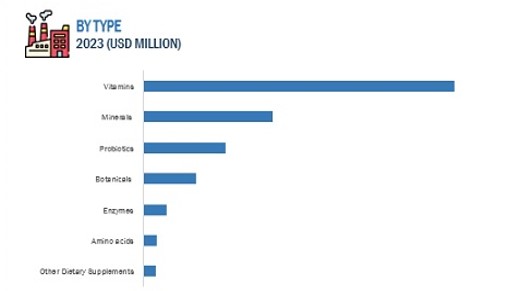In recent years, Erdyn has been involved in several projects concerning dietary supplements for the elderly. This trend is growing in research but also on an industrial scale with a renewed interest both from large companies but also with the birth of numerous startups.
According to the National Institute on Aging , dietary supplements are nutrients that can be added to diets or help reduce the risk of health problems. Food supplements come in the form of pills, capsules, powders, gel capsules and tablets, extracts or liquids. They may contain vitamins, minerals, fiber, amino acids, herbs or other plants, or enzymes. These supplements can be taken alone or added to foods and drinks.

According to Markets and Markets , the global food supplement market is worth €168 billion in 2023 and is expected to reach nearly €239 billion in 2030 with a growth rate of 6.2%.
The main drivers of this market are the proliferation of scientific evidence on the benefits of dietary supplements on health and well-being. In addition, consumers are much more aware of the importance of improving their lifestyle to live longer and in good health. They want to consume more natural ingredients, such as plant-based food supplements for example, and avoid the use of medications as much as possible. Indeed, an increase in demands for protein, vitamin and mineral supplements has been observed in recent years. According to the National Institute on Aging , people over 50 can take calcium, vitamin D, B6, B12 for prevention. It is also recommended to consume antioxidants such as beta-carotene, selenium, vitamin C and vitamin E.
The largest market opportunity will be for plant-based products. In fact, these are alternatives to existing products, they help to address certain health issues (lactose/gluten intolerance, allergies, etc.) or environmental issues.
Due to the increase in the elderly population as well as their specific nutritional needs, the elderly represent the largest segment of this market. They mainly consume these products to improve their joint health, the strength of their bones, their cognitive functions, their cardiovascular health, as well as to boost their immune systems. Manufacturers of dietary supplements try to best meet the needs of this population. They can sometimes adapt their product ranges by taking into account their specificities such as polypathological patients and, for example, offer ranges with fewer sugars intended for diabetics or with fewer salts for people with high blood pressure.
According to Markets and Markets , the main global players present in this market are: Nestlé (Switzerland), Abbott (United States), Amway Corp (United States), Pfizer Inc. (United States), ADM (United States). United States), International Flavors & Fragrance (United States)…
In France, food supplements are regulated by Decree No. 2006-352 of March 20, 2006 and they must contain exclusively: nutrients or substances for nutritional or physiological purposes such as vitamins or minerals; food plants; foods authorized for human consumption; additives and flavorings authorized in food.
However, there are also disadvantages to selling dietary supplements. Probiotics or enzymes, for example, must have optimal storage conditions, which are sometimes expensive, so as not to lose their effectiveness. The availability of raw materials for these supplements can also be a constraint for certain products because this has a direct impact on the price of the final product. The same goes for natural products which are more expensive.
One of the future challenges of this industry is to reassure consumers and health professionals about the effectiveness of food supplements when taken for prevention, particularly for the elderly. Solid evidence with scientific studies is often requested to demonstrate the beneficial effects of these products.
Sources :
- https://www.nia.nih.gov/health/dietary-supplements-older-adults
- https://www.marketsandmarkets.com/Market-Reports/dietary-supplements-market-973.html
- https://www.economie.gouv.fr/particuliers/complements-alimentaires
- https://www.legifrance.gouv.fr/loda/id/JORFTEXT000000638341*
